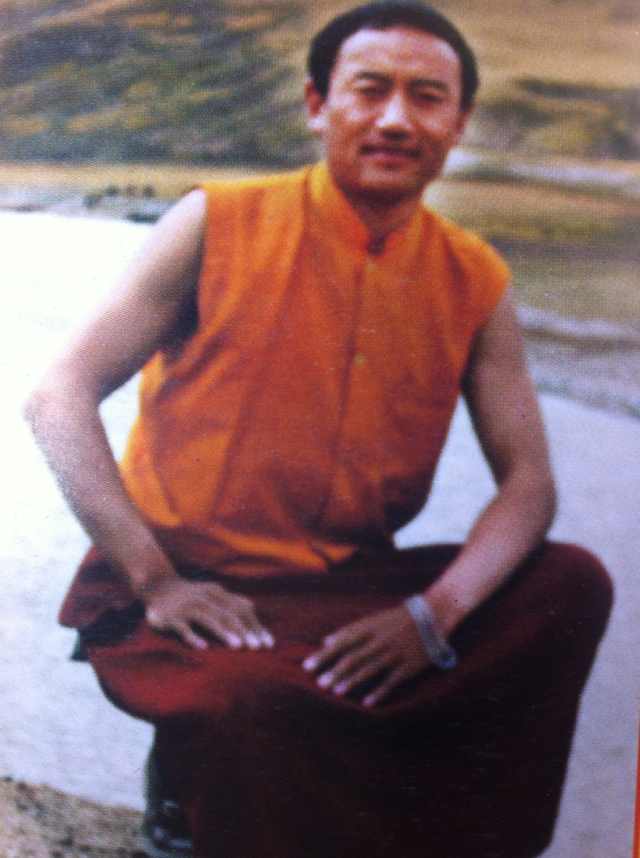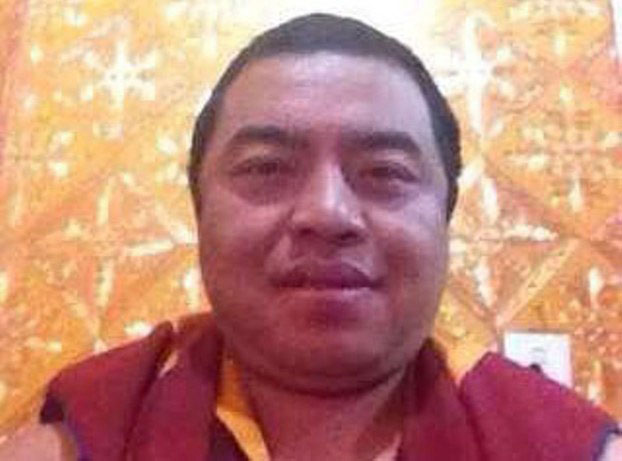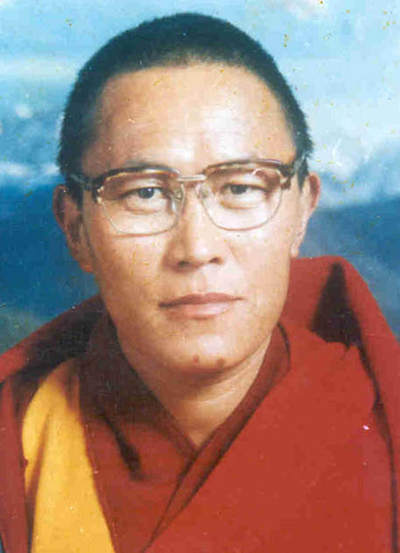Sunday, March 29 – Today, China’s government marks the 56th anniversary of “Serf Liberation Day,” on which it claims it brought freedom and democracy to Tibet’s people. Information about Tibet coming out of the country is highly repressed, but that which does get out tells a different story.
Ngawang Gyaltsen, a prominent Tibetan artist and monk, was arrested on charges of political activism challenging China’s rule on February 24, taken from his home overnight by Chinese authorities.
Gyaltsen, 41, developed a reputation among Chinese officials for speaking up against the country’s Patriotic Reeducation Campaign at his Shag Rongpo monastery, a Communist Party campaign of thought reform which has forced monks to denounce their faith and swear fealty to the country’s Maoist government. Gyaltsen became widely known throughout Tibet in 2010, when Chinese police arrested the leader of the monastery or allegedly working with the Dalai Lama, the exiled religious and cultural leader of Tibetans.

Ngawang Gyaltsen, Tibetan artist and monk arrested by Chinese authorities in February for his political activism (Phayul.)
From that point forward, Gyaltsen was forced by the Chinese government to live the life of a layperson, and subjected to restrictions on his movements, made to seek permission from local police to travel or meet with other people.
For a month after his secret arrest, the activist-artist’s whereabouts were unknown, until a group of friends traced him to a police station in Nagqu, some 144 miles (231 kilometers) from his home of Sog.

The 144 mile (231 kilometer) journey from Sog to Nagqu, where Gyaltsen has been traced after being secretly taken from his home under cover of the night. Friends discovered only recently that Gyaltsen was being detained in a Nagqu police station, as Chinese authorities strictly monitor and censor communication in Tibet (Google Maps.)
The Chinese government has intensely limited communications in Tibet, for fear of spreading unrest, but Tibet’s community of exiles has served to bring news from their home country to the outside world. Ngawang Tharpa, a Tibetan exile with anonymous contacts in the region, detailed that up until his arrest Gyaltsen was subjected to strict, near-constant surveillance, and that until now not even his family was aware of his location.

Lobsang Dawa was taken in the night from his monastery, and is detained while no official charges have been named against him. Locals spoke on condition of anonymity, stating that Dawa was likely arrested for posting patriotic Tibetan content on his social media accounts (Phayul.)
China’s increasingly intense policy has further manifested itself in the arrest of another monk from Sog, Lobsang Dawa, who was taken from his monastery in the night by authorities. Though no official reason was given for Dawa’s arrest, Tharpa expressed the belief of many locals that he “had been arrested for exchange of information and pictures related to Tibet via social media.”
Lobsang Dawa’s whereabouts remain unknown.
While the China has a long history of detaining Tibet’s cultural activists, Tibetans have retained popular support for their worldwide. On April 7, groups supporting Tibetan culture will be holding demonstrations at Chinese government offices and embassies demanding the release of Tenzin Delek Rinpoche, a highly respected religious leader who is serving a life sentence in prison for his outspoken support of the Dalai Lama and Tibet’s own culture, having been accused of a violent crime in a trial which was criticized as unfair by human rights groups and United Nations experts.

Tenzin Delek Rinpoche, in a photo distributed by his fellow monks so that others would know about his detention (Wikimedia Commons.)
Due to a heart condition, some believe that much more time spent in prison could likely lead to the death of the spiritual and cultural leader, and the April 7 demonstrations will be calling for his release on medical parole, crucial in a region where the United Nations describes torture to be “widespread” and “routine.”
Working with Students For A Free Tibet, The Voice Project is working to monitor these stories as they develop and will provide more details as we are able to confirm them.
The Voice Project continues its support for Tibetan activist-artists through its Free The Tibet 10 campaign, denouncing China’s systematic persecution of the Tibetan people and the violation of international human rights law by the conditions of their detention.
